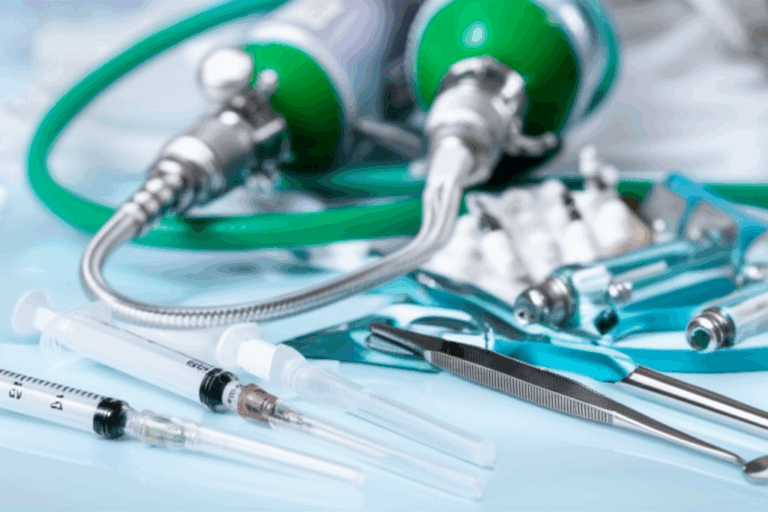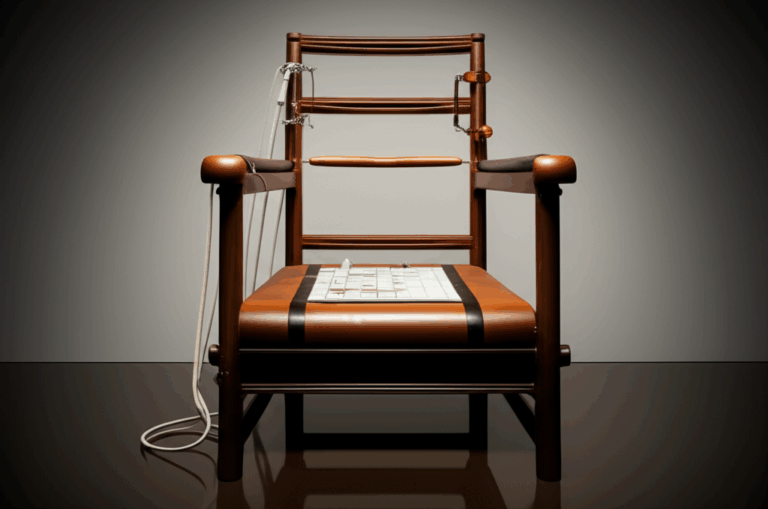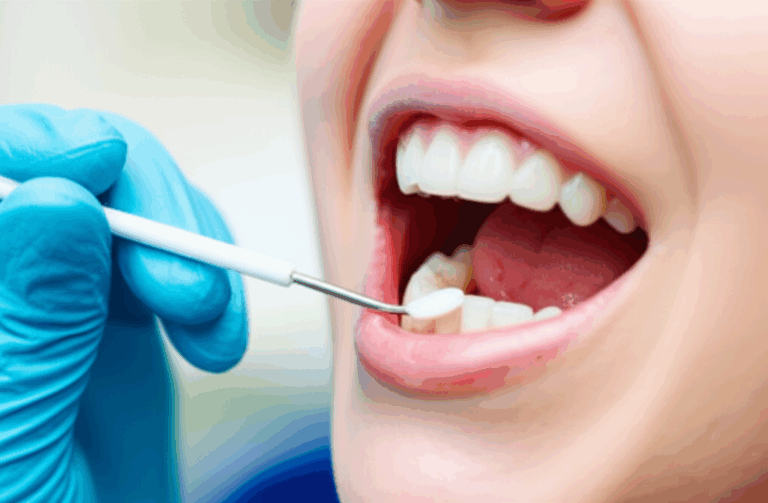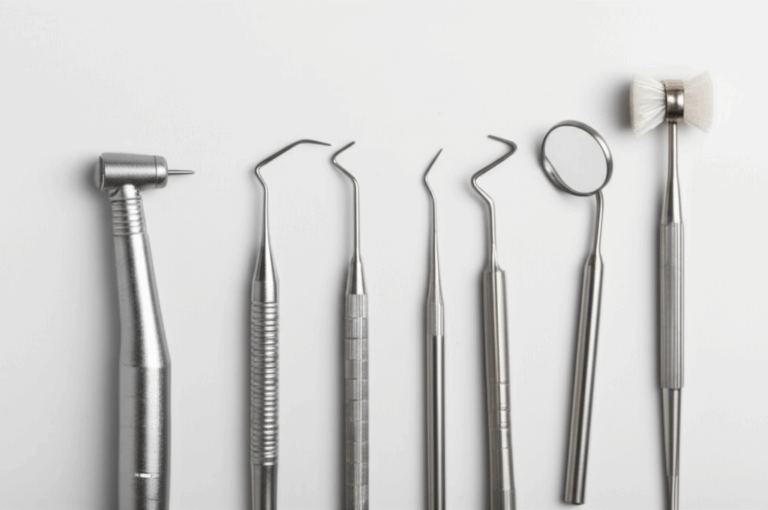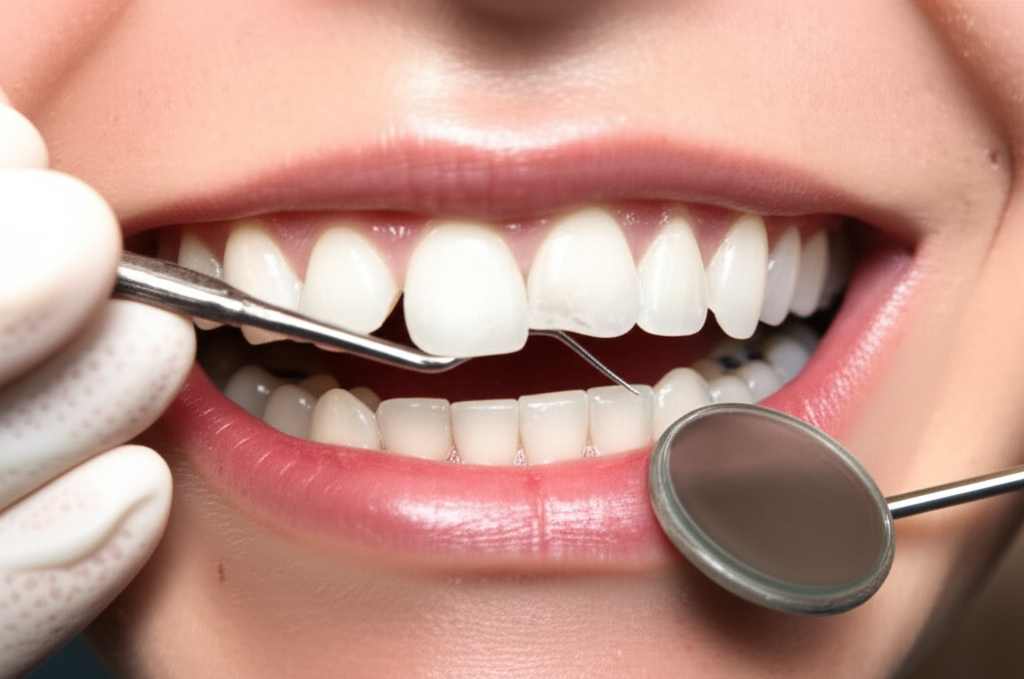
Can a Dentist Fix a Cracked Front Tooth? Easy Guide to Repair & Restoration
A cracked front tooth can feel terrible. You see a line or a chip in your smile and worry right away. But here’s the good news: in most cases, a dentist can fix a cracked front tooth and help you feel better about your smile. In this guide, I’ll explain what causes cracked teeth, what signs to look for, how dentists fix them, and why getting help quickly is important. You’ll learn about each fix, what it costs, how it feels, and which option might be best for you. Want your smile—and peace of mind—back? Let’s get started.
Table of Contents
- Introduction: What Happens When Your Front Tooth Cracks?
- Why Does a Cracked Front Tooth Happen?
- How Can You Tell If Your Front Tooth Is Cracked?
- How Does a Dentist Find Out What’s Wrong?
- What Are the Main Types of Front Tooth Cracks?
- Can Dentists Really Fix Cracked Front Teeth?
- What Are the Best Ways to Repair a Cracked Front Tooth?
- How Much Does It Cost to Fix a Cracked Front Tooth?
- How Should You Take Care of a Repaired Tooth?
- How Can You Protect Your Front Teeth From Cracking?
- When Should You Call a Dentist?
- Summary: Key Takeaways
Introduction: What Happens When Your Front Tooth Cracks?
Ever bit down and felt something weird? Maybe you checked your teeth and saw a line or chip. It can make you feel worried. Your front teeth show when you smile. When one cracks, it feels like more than just a tooth problem—it can hurt your confidence!
But don’t give up just yet. Dentists have ways to fix cracked front teeth. If you act fast, you can save the tooth, stop pain, and keep the crack from getting bigger. This guide will help you keep calm, know what to do, and show that most cracked teeth can be fixed—even if they look really bad at first.
Why Does a Cracked Front Tooth Happen?
Let’s see why front teeth can crack. To be honest, our front teeth can’t always handle what we use them for. Some everyday reasons are:
- Biting Hard Things: Chewing ice, biting popcorn kernels, candy, or even pens can crack teeth.
- Getting Hurt: A fall, sports bump, or something hitting your mouth can chip or break teeth.
- Weak Teeth: Teeth with lots of old fillings or decay can snap easier. Grinding your teeth (bruxism) also makes them weak.
- Hot and Cold Changes: Eating ice cream then drinking hot tea? Teeth don’t like that fast change!
Even strong teeth can sometimes crack from just one wrong bite. I saw a patient who cracked a tooth opening a bottle—ouch! That’s not a good idea.
How Can You Tell If Your Front Tooth Is Cracked?
Not all cracks are easy to see. Some show up, some don’t. Here’s what to watch for:
- You See a Crack or Chip: Maybe there’s a line, a small piece missing, or the tooth looks uneven.
- Pain When Chewing: You might feel sharp pain when biting down, or letting go.
- Feels Sensitive to Hot, Cold, or Sweet: A cracked tooth might hurt when you drink cold water or eat hot things.
- Pain Comes and Goes: Sometimes it hurts, sometimes it doesn’t.
- Gum Redness or Swelling: This can mean there’s an infection near the tooth.
It’s easy to ignore small pain. But small cracks can turn into big tooth breaks fast.
How Does a Dentist Find Out What’s Wrong?
Dentists are like detectives—they need to know not just if your tooth is cracked, but how bad it is. Here’s how they figure it out:
- Looking Closely: Dentists use little mirrors, magnifiers, and sometimes dyes to spot cracks.
- Bite Test: You may bite gently on a stick or cotton roll. Pain when biting helps find the crack.
- Dental X-rays: Some cracks hide from x-rays, but x-rays do help see if there’s damage inside or bone loss.
- Tooth Tests: The dentist might use something cold, hot, or a small electric zap to check if your tooth’s nerve is ok.
Dentists use all these things to pick the best way to fix your tooth. For really tough cases, they might send you to a root canal specialist.
What Are the Main Types of Front Tooth Cracks?
Not all cracks are the same. Here are the most common kinds:
| Type of Crack | What It Looks Like | How Bad Is It? | How To Fix |
|---|---|---|---|
| Craze Lines | Very tiny cracks on the surface | Not bad | Just polish or whiten |
| Chipped Tooth | Small piece broken off | Not too bad | Bonding, sometimes veneer |
| Fractured Cusp | Bigger chunk at the edge gone | Medium | Bonding, crown, or veneer |
| Cracked Tooth | Crack running toward the root | Pretty bad | Crown, maybe root canal |
| Split Tooth | Tooth splits into two pieces | Really bad | Take out tooth, then replace it |
| Vertical Root Fracture | Crack deep in the root | Worst | Often needs tooth taken out |
Some just look bad, but others can make you lose the tooth if not fixed fast.
Can Dentists Really Fix Cracked Front Teeth?
Let’s be clear: yes, dentists can fix cracked front teeth. The sooner you see a dentist, the easier it is to fix. If you wait, the tooth can break worse. I’ve helped people with little chips or even serious cracks. It just depends on the fix.
Don’t worry too much about going to the dentist. Most tooth cracks are easy to fix—sometimes in just one visit!
What Are the Best Ways to Repair a Cracked Front Tooth?
Everyone’s mouth and crack is different. Here’s what dentists usually do:
Dental Bonding: Quick & Simple Repair
Small chips and cracks? Dental bonding is a quick fix. The dentist puts a tooth-colored paste on, shapes it, and hardens it with a special light. Done in an hour.
Pros: Looks real, not too pricey, no drilling needed.
Cons: Not as tough as crowns or veneers. Can chip if you bite something hard.
Story: I once fixed a chipped front tooth for a kid—he was all smiles for his school picture that week.
Porcelain Veneers: Fix Big or Ugly Cracks
If the crack is bigger or shows a lot, a porcelain veneer may be best. It’s a thin shell that covers the front of your tooth. You’ll need two visits.
Pros: Strong, looks natural, covers cracks and stains.
Cons: Costs more, dentist needs to remove a little tooth enamel.
Learn more about repairs like this at our veneer lab.
Dental Crowns: Shield for Deep Cracks
Big cracks need a shield. Dental crowns do this. The dentist shapes your tooth, takes a mold, and puts a special “cap” on your tooth.
Pros: Works best for big cracks, lasts a long time, protects tooth.
Cons: Takes a couple of visits, costs more.
See more at our crown and bridge lab.
Root Canal Treatment: For Deep Trouble
If the crack reaches the nerve, you might need a root canal. The dentist cleans out the sick part, fills the root, and puts a crown on the tooth.
Pros: Saves the tooth, stops pain and infection.
Cons: Takes longer, more expensive.
Tooth Extraction & Implant: If the Tooth Cannot Be Saved
Some cracks go too deep. If your tooth splits or gets a bad infection, it might have to come out. A dental implant or bridge can fill the gap.
Pros: Stops pain and infection, gives you a new tooth.
Cons: Most expensive, takes a few months and some visits.
If you want the latest fixes, check out our digital dental lab.
How Much Does It Cost to Fix a Cracked Front Tooth?
Let’s talk about cost. Fixing a cracked front tooth can be cheap or cost a lot, depending on the repair. Here’s a quick chart:
| Treatment | Price Per Tooth | Insurance Coverage |
|---|---|---|
| Dental Bonding | $100 – $600 | Usually “restorative” |
| Porcelain Veneer | $900 – $2500 | Sometimes, if needed |
| Dental Crown | $800 – $3000 | Usually partial |
| Root Canal | $700 – $1500 | Often partly covered |
| Extraction & Implant | $2000 – $6000+ | Sometimes |
Prices can change a lot depending on where you live, how tricky the fix is, and your dentist. If you choose really strong, nice-looking teeth with fancy materials, you’ll pay more, but it looks fantastic.
Tip: Always ask about payment options and check with your insurance before you start.
How Should You Take Care of a Repaired Tooth?
Once your tooth is fixed, you still need to care for it:
- Eat Soft at First: Try soft foods for a few days if it’s sensitive.
- Brush and Floss: Clean your teeth twice a day, floss daily to keep bacteria away.
- No Chewing Hard Things: Don’t bite ice or pens, and don’t try to open stuff with your teeth!
- Wear a Guard: If you grind your teeth or play sports, use a mouthguard.
- Regular Dentist Visits: Check-ups can catch small problems before they’re big.
Take care, and your fix can last many years—sometimes even a lifetime.
How Can You Protect Your Front Teeth From Cracking?
Prevention is key! Here’s how to keep your teeth safe:
- Don’t Bite Hard Stuff: Skip hard candy, ice, and don’t use your teeth as tools.
- Use Mouthguards: Guard your teeth during sports or if you grind at night.
- Fix Cavities Early: Small cavities and big old fillings can weaken teeth. Fix them early!
- Go to the Dentist: Regular check-ups find little problems before they become emergencies.
If you’re worried about teeth grinding, custom mouthguards from a night guard dental lab are worth it.
When Should You Call a Dentist?
Don’t wait if you spot:
- A crack or chip in your front tooth
- Pain or sensitivity, especially when biting
- Swelling, pus, or a bad taste near a tooth
- Tooth suddenly turns a different color
Even if it doesn’t hurt now, cracks usually get worse. Act quickly to save your tooth and your smile!
Not sure? Get a second opinion. Don’t be afraid to ask questions. Fixing your front tooth isn’t just about looks—it keeps your whole mouth healthy.
Summary: Key Takeaways
- Don’t panic—most cracked front teeth can be fixed!
- Go to the dentist as soon as you notice a problem. Fast action keeps the crack from getting worse.
- Choices for repair are dental bonding, porcelain veneers, crowns, root canals, and sometimes implants.
- Cost can be from $100 up to $6000 or more, depending on the repair.
- Take care of the repaired tooth by brushing, flossing, not biting hard things, and wearing a guard if needed.
- The best protection: avoid bad habits and keep regular dentist visits.
FAQs
Q: What if I put off fixing a cracked front tooth?
A: The crack can grow, start hurting, or get infected. Waiting means the fix can get harder and cost more.
Q: Will my fixed tooth look real?
A: Yes! Today’s dental fixes look just like real teeth—most people can’t tell the difference.
Q: How long does a repair last?
A: Crowns and veneers often last 10-20 years or more if you care for them. Bonding might need touch-ups sooner.
Q: Can cracked teeth heal by themselves?
A: No, they won’t heal. You need a dentist.
Q: When is pulling the tooth the only choice?
A: If the crack goes deep into the root or there’s a bad infection, you might need the tooth taken out—but your dentist will talk you through all your choices.
Want to learn more about dental fixes or get help? Visit china dental lab for more info and great solutions.
Take care of your smile! If you ever chip, crack, or break a tooth, remember: you’re just one phone call away from getting help. Your dentist—and good dental labs—are always here for you.

